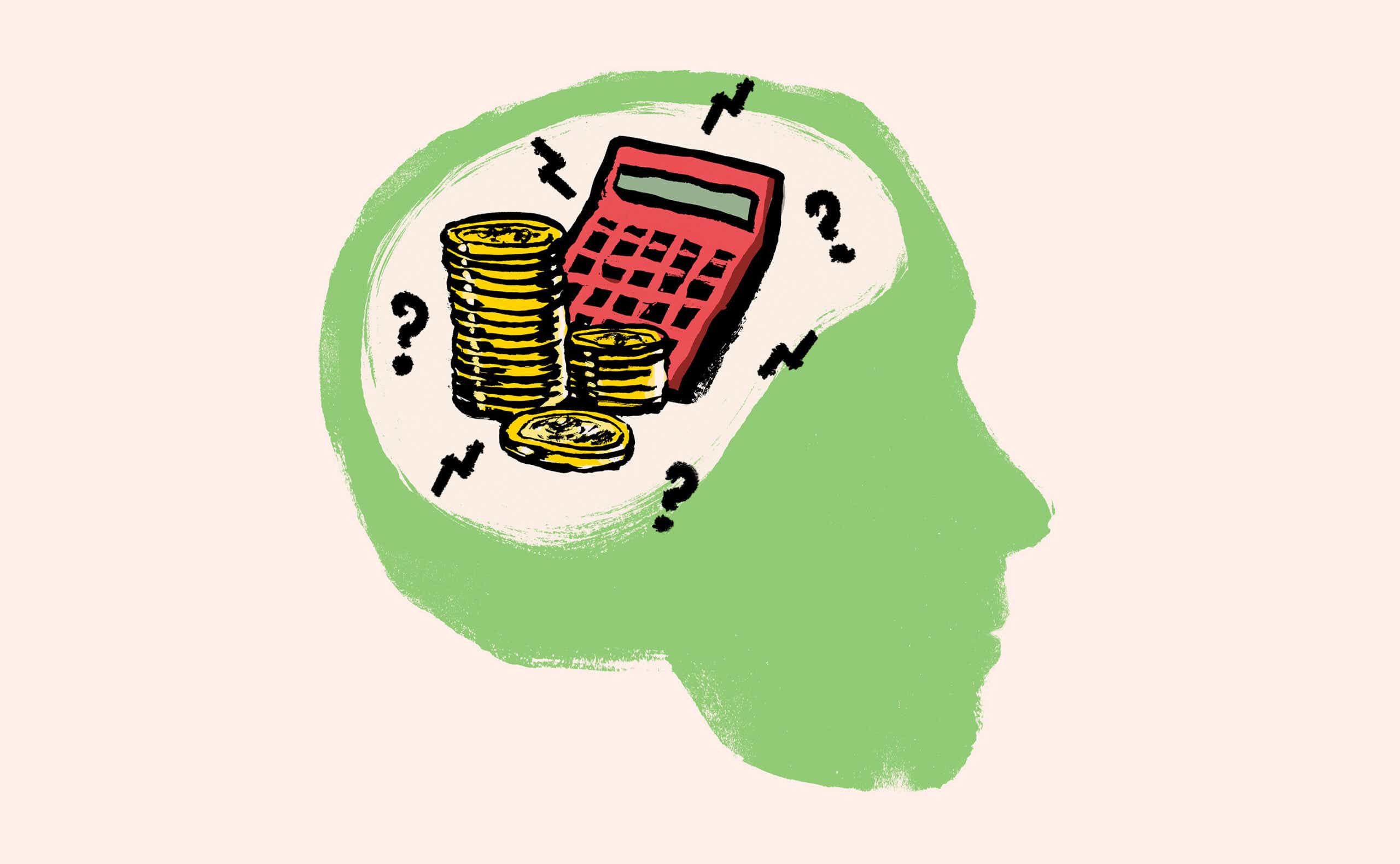2023 is shaping up to be a tumultuous time period. From ongoing predictions of a recession looming to the ceaseless effects of inflation to rampant layoffs and the threat of A.I., it seems like financial instability is everywhere.
For many people, spending is always a stressful topic. But in circumstances like these, your money mindset can become downright survivalist. So what do you do with those feelings of scarcity, insecurity, and fear?
Katie Couric Media spoke with Farnoosh Torabi, a personal finance expert, about how to figure out which financial fears are actually worth having, which are not, and what to do with those feelings as they come to you.
Is financial fear irrational?
First of all, we're here to tell your feelings and fears are always valid — especially in this specific instance. "When we feel like our ability to succeed financially and be financially secure is at the mercy of bigger macro trends like recessions, unemployment, and inflation, it’s very normal to feel afraid of the uncertainty and unpredictability of it all," Torabi explains.
The stakes can feel very high because they are, Torabi confirms,
"We don’t know if we’ll lose our jobs or how unemployment may take a toll on our ability to support our families," Torabi says. "We don’t know how we might manage to pay our expenses if the cost of living continues to rise. As humans, we want to feel in control. We want to feel secure. And when those feelings are threatened, fear shows up on our doorsteps…with luggage."
Torabi has a specific strategy she recommends you use when you feel dollar-sign-induced anxiety start to bubble: Ask yourself a series of questions in order to determine what type of fear this is, a rational one or an irrational one. These questions include: "Where is this fear coming from?" and "How and why did it arrive now?"
"For example," Torabi says, "is your fear of losing your job due to the fact that you don’t have any savings to tide you over while transitioning to your next role? If that's the case, then that’s a healthy fear, in my view. In this example, you should follow this fear to start reducing expenses, updating your LinkedIn profile, and reconnecting with mentors."
But what if you do have plenty of savings, and are still concerned about so much looming financial instability?
"For some, job loss fears have more to do with losing a sense of identity or experiencing shame. In this case, you’re not being fair to yourself," Torabi notes. "You’ve been conditioned to think this way because we live in a capitalist world and we spend so much time at work, it’s natural to become one with our professions. If that’s your answer, then see this fear as a signal that you may be better off abandoning this cultural myth, and seeking fulfillment beyond your 9 to 5."
How to face your financial fears
If you’re afraid of scenarios like unemployment or a sudden medical expense, you shouldn't ignore these feelings, Torabi says, especially if you've identified a real threat (i.e. the lack of savings mentioned above). Instead, you should sit with them and really examine the worst-case scenario.
Consider this shift in mindset: Rather than worrying about what if, worry about what now?
Torabi advises you to ask yourself, "what might actually happen after getting laid off?" and start to prepare answers to accompanying questions like, "Do you risk not being able to pay for housing? Could your savings cover your immediate expenses? What are some cuts you’d make to your spending? Are you aware of how to apply for unemployment?"
Yes, this exercise might end up making you feel even more anxious in the process, but in the long run, it will help you move through those anxieties and once you're on the other side, you'll be more prepared for that worst-case scenario, if it ever hits. If you start building up some concrete answers to those scary questions, they will eventually amass to become a wall of defense against such fears. "It's an effective way to measure your financial vulnerabilities before things go wrong," Torabi says, "so you can use that knowledge to start playing financial defense now to the best of your ability."
After assessing, once this fear pops up again, you'll have the information required to suppress it.













